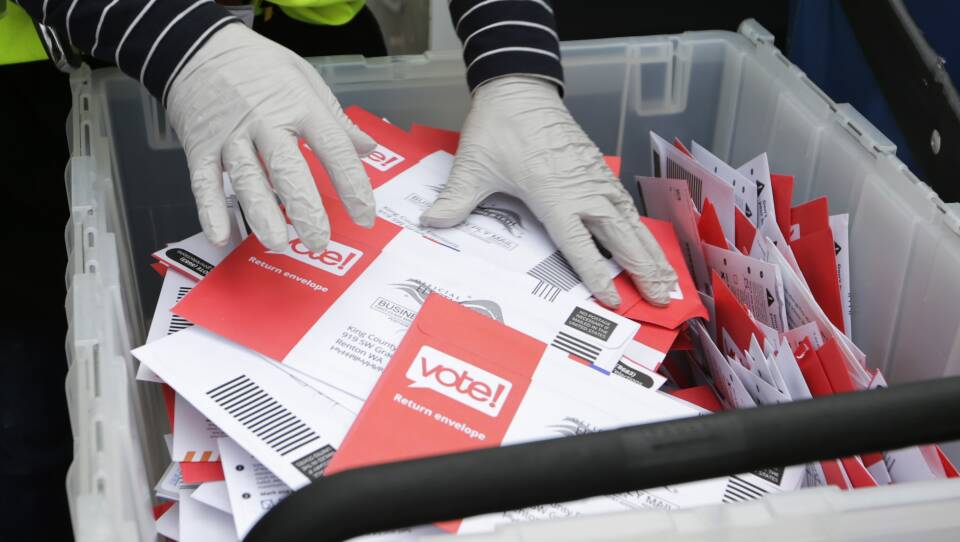Five members of the Massachusetts congressional delegation called on state leaders to pass a universal vote-by-mail law in advance of fall elections during a press conference Thursday.
“We know the status quo is not going to save us,” Rep. Ayanna Pressley said. “Even before this pandemic, far too many people were disenfranchised.
“As we continue conversations about expanding access [to voting], we need to continue conversations about holding our ground now,” she added.
The group, which also included Rep. Joseph Kennedy III, Rep. Jim McGovern, Rep. Katherine Clark and Rep. Lorie Trahan, called on Beacon Hill to pass legislation that would automatically send mail-in ballots to all registered voters in the state ahead of the November general election.
Pending legislation by Sen. Becca Rausch and Rep. Adrian Madaro filed Wednesday was not directly referenced. That bill would require the secretary of state to send primary ballots to voters enrolled in a party and allow unaffiliated voters to request a ballot for the party of their choice for the Sept. 1 Senate primary. The bill would require the state to issue a mail-in ballot to all registered voters for the Nov. 3 general election.
The delegation, all Democrats, also raised concerns that the Trump administration may use the COVID-19 pandemic as an excuse to suppress voting and pointed to last week’s Democratic primary in Wisconsin as a harbinger of things to come if the state does not act quickly.
“COVID-19 obviously represents an unprecedented challenge to our country on many levels,” Kennedy said. “Among them is the right to vote. ... If anyone has any doubts about that, you just need to look at Wisconsin, where they held an election in spite of the governor’s objections.”
McGovern pointed out that in Milwaukee — a city largely populated by people of color — the conditions and last-minute wrangling over whether the election would go forward led to only five of the city’s 180 polling locations being open.
The vote happened after the state’s Supreme Court, an elected body with a conservative majority, overruled Democratic Gov. Tony Evers’ decision to postpone the election over social distancing concerns.
“We want to make sure that we are safeguarding our democratic institutions in this time of crisis,” Clark said. “Trump is using this pandemic to spread a great deal of misinformation, and among them is that the mail-in programs are a vehicle for voter fraud.”
The election had a turnout rate just over 34 percent, according to the Wisconsin Elections Commission's website .
Pamela Wilmot, director of Common Cause Massachusetts, an advocacy organization focused on encouraging greater participation in the democratic process, said that voter identification provisions in the commonwealth would still be in effect if the law goes into effect. Voters would have the option to present acceptable ID with the posted vote or upon request, she said, and proper precautions would be taken to preserve anonymity and the security of the ballot.
The delegation said that physical polling locations would remain open and that any legislation should include provisions requiring the state to give poll workers personal protective equipment. They also advocated for having younger volunteers who would be less vulnerable to COVID-19 at the stations.
Though the costs were unclear as of Thursday, the delegation said the state should seek federal funds to help in the endeavor.
Voters shouldn’t “have to risk their health to exercise this fundamental right,” Clark said. “We must be able to run fair, safe elections. .. We want to make sure that we are safeguarding our democratic institutions in this time of crisis.”
Secretary of State William Galvin previously flagged concerns with vote-by-mail as a concept because of uncertainty about how election officials would know which primary ballot to send, since that's a choice made by voters.
Correction: This story has been updated to correct the first name of Rep. Madaro and to clarify that the Rausch-Madaro bill would allow all Massachusetts voters to get ballots for both primaries and general elections.




